School Gardens for a Plastic Free Future: Spotlight on Pam Rydzinski
Wayfinder Society is for environmental educators who believe in the power of collective action. It is an online platform hosting a robust offering of classroom and teaching resources that makes it easy for educators to create a fun, dynamic, and engaging classroom and to inspire their students through environmental awareness and action. Every other month, we highlight an educator in our network.
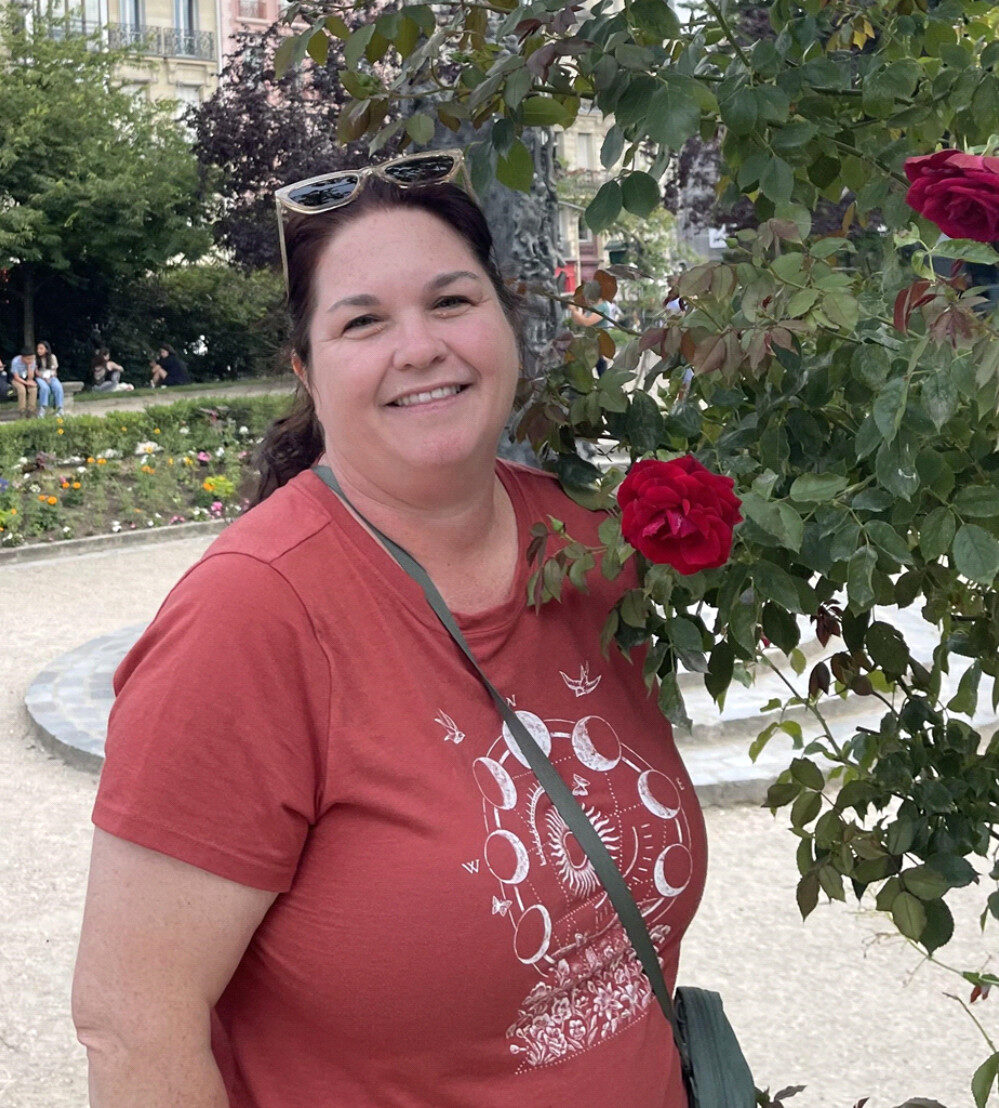
Ms. Pam Rydzinski is the STEAM Lab facilitator, garden coordinator, and science fair coordinator for March Middle School in Moreno Valley, California. Currently, she is working on opening her school’s garden with the goal of educating students about sustainable practices in farming and empowering them with the knowledge to grow their own food. In a world where plastic wrapped fruits and vegetables become more common place on grocery store shelves and backyard gardens are turned into asphalt, the school garden project is a great way for students to build the connections between food production, food waste, and plastic pollution.
Modern farming techniques often include monocrop farms with high inputs of chemical fertilizers, herbicides, and pesticides. After the produce is harvested, they are transported many miles to make it to a manufacturer where the fruits or veggies are often “preserved” covered in a plastic film, a plastic container, then sent to the grocery store where they are placed in a plastic produce bag (free to the consumer ). As research on plastic grows, more and more information regarding the harmful effects on people and planet comes to light.
In order to break our reliance on plastic and raise awareness about the harms of its subsequent pollution, it’s important to offer tangible learning opportunities for students that gives them the tools to be a part of the change. Ms. Rydzinski’s school garden is a great example! She plans on using the new school garden to show students that growing their own food is not only possible, but more accessible than one would initially think. By learning how to grow their own food, students can rely less on the plastic wrapped fruits and vegetables that are offered in school lunches. They can learn a new skill and see that “healthy” foods do not always have to come with a higher financial burden as many healthier options do today. In addition, keeping food sources local means less emissions created during transportation. The garden will represent an alternative way of life that is healthier for both, people and planet.
As an organic garden, the school garden will incorporate techniques used prior to industrial agriculture including ones that naturally deter pests and attract pollinators – without the need for synthetic inputs. Many of the most common synthetic pesticides used today in industrial agriculture are derived from fossil fuels – just like plastics are! With the few beds the school garden has today, they plant marigolds and other companion plants with their produce as a natural way to help with garden pests. Another benefit of using flowers as companion plants is that they support pollinators. Ms. Rydzinski’s curriculum educates students about the importance of pollinators and depicts how the honeybee is endangered due to overuse of chemical pesticides. When the garden is complete, she plans on integrating future projects like reusing materials to make beneficial bug houses. Once the garden starts regularly producing, she plans to highlight one type of produce each month by featuring each in enlightenment lessons where students will learn how they can prepare the produce in meals that they can eat at home.
Her end goal is that the school garden flourishes enough to become a steady and reliable food source for her school’s cafeteria. The school has already started to grow a fruit forest with a diverse array of fruit trees to serve at lunchtime for students. Another one of Ms. Rydzinski’s goals is to eventually do away with the plastic bagged apples that make up the current cafeteria fruit offerings. She’s already seen a large decrease in plastic bottles now that the school has installed water bottle filling stations, and she hopes to see more students and educators using reusable water bottles in the future.
Another important part of Ms. Rydzinski’s curriculum is the focus on food waste. It wasn’t until she started paying attention to her personal food waste in her own home that she started to understand the immense problem of food waste on a global scale. This revelation inspired her to incorporate this topic into her curriculum. One way Ms. Rydzinski is trying to teach about this issue is by integrating a composting system in her school garden that can divert the food waste from the school cafeteria and upcycle it into healthy, living soil to put back into the garden – a viable circular system that students can witness firsthand and be a part of.
We are so excited to award Ms. Rydzinski the Wayfinder Society for Environmental Education’s March Mini-Grant. She is a shining example of an educator creating positive change in the lives of her students and in her community. We hope her work inspires other educators to make the connection between gardening, food waste, and plastic pollution. Because plastic impacts nearly all facets of our lives, these connections and hands-on opportunities are integral to holistically approaching the complex issue.
“I have always been passionate about our environment. I believe we are the stewards of this planet and we have a responsibility to take care of it. I am hopeful that by teaching students these important topics and highlight solutions, they will go home and share it with their families.” – Ms. Pam Rydzinski
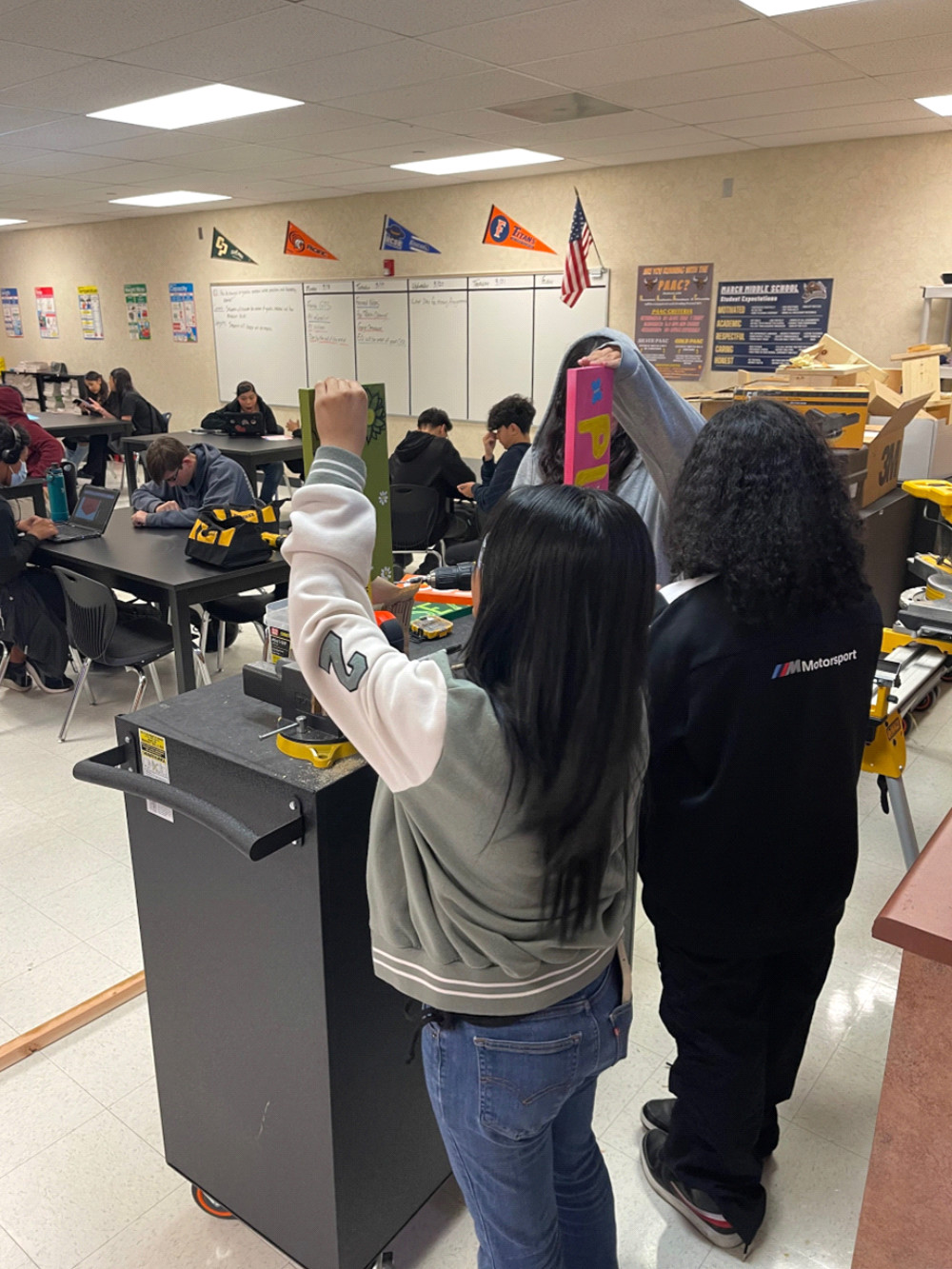
Students working on painting a sign for the school garden.
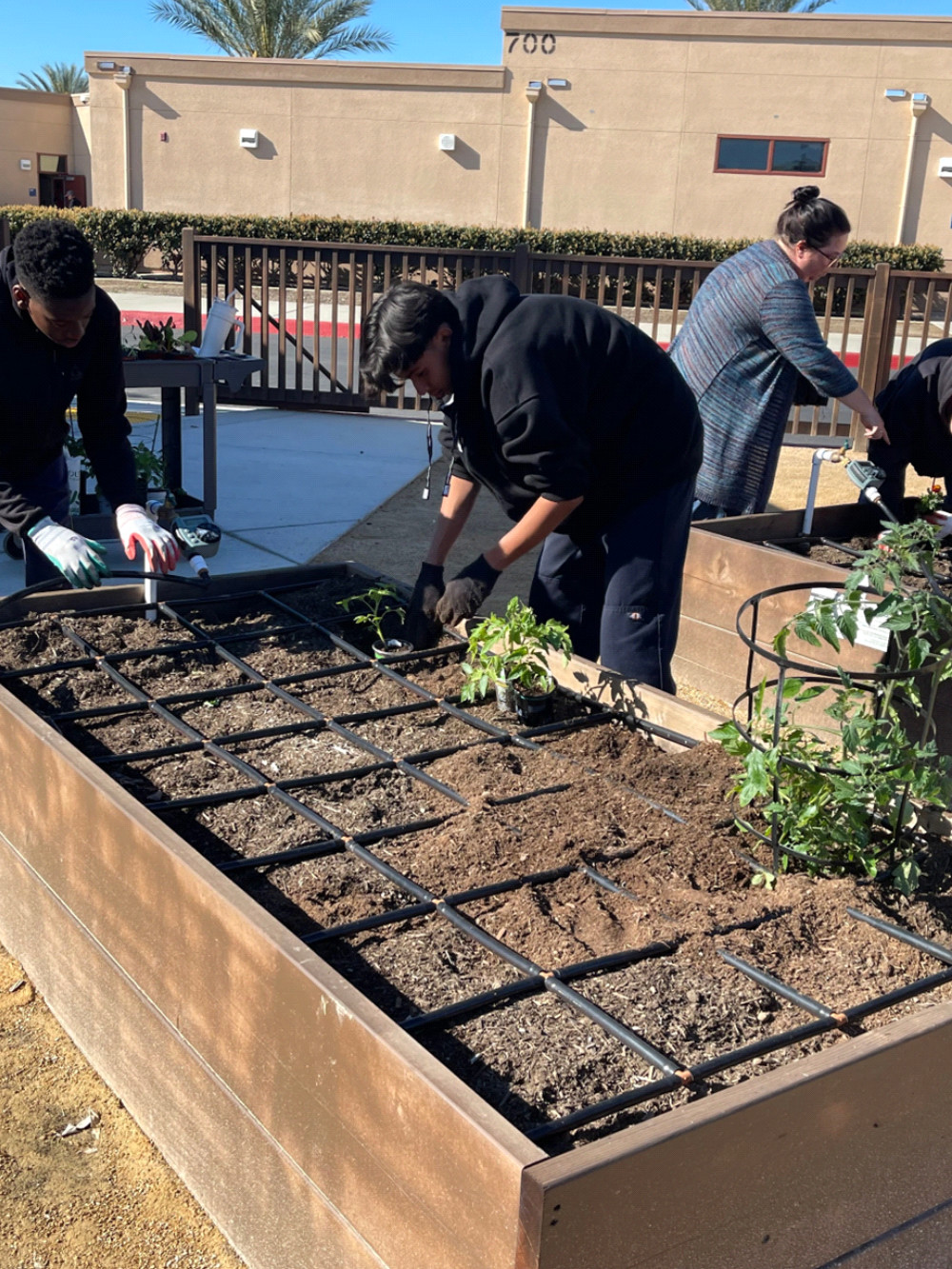
Students planting tomatoes in a raised garden bed.
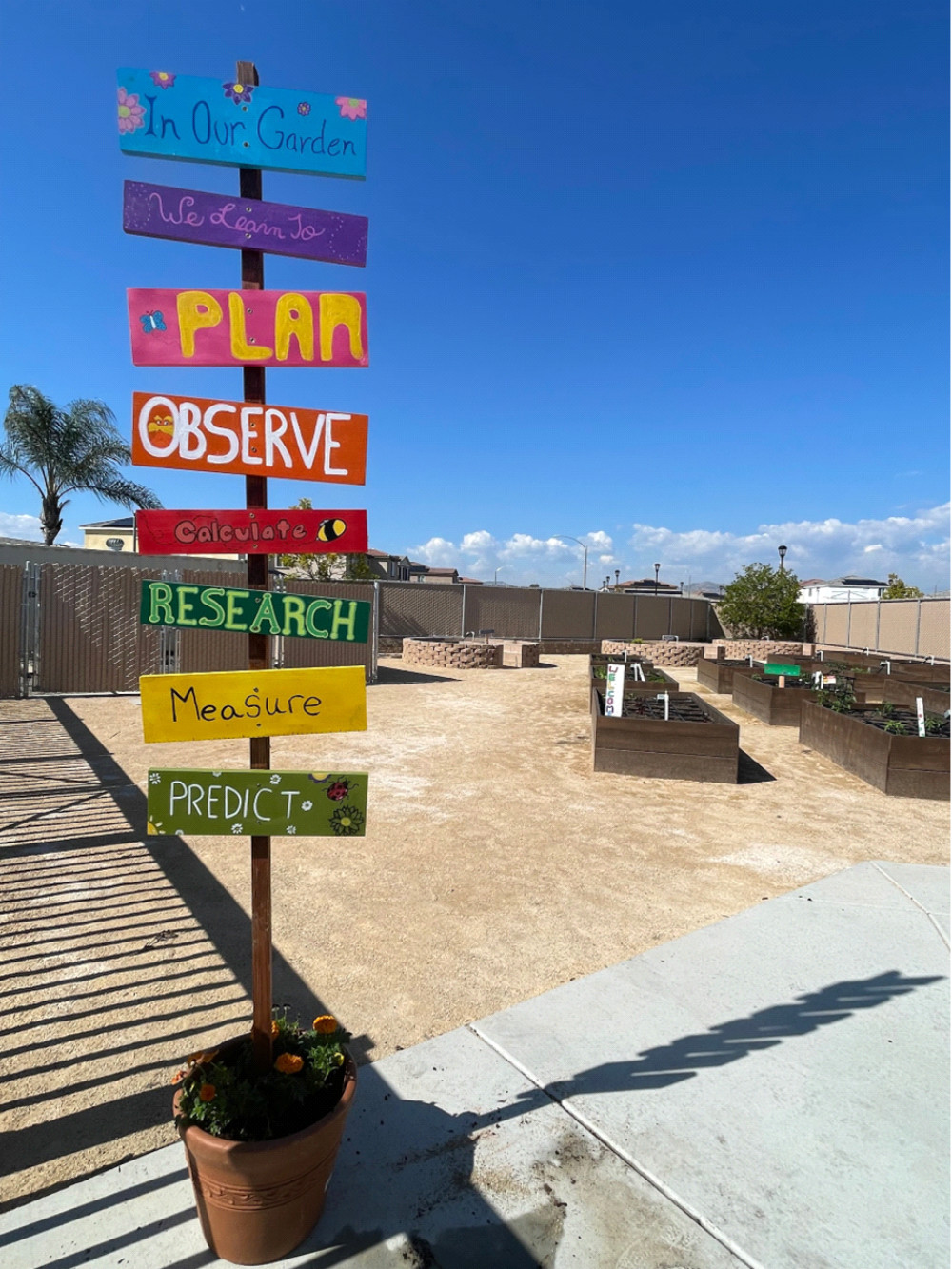
The complete school garden sign!
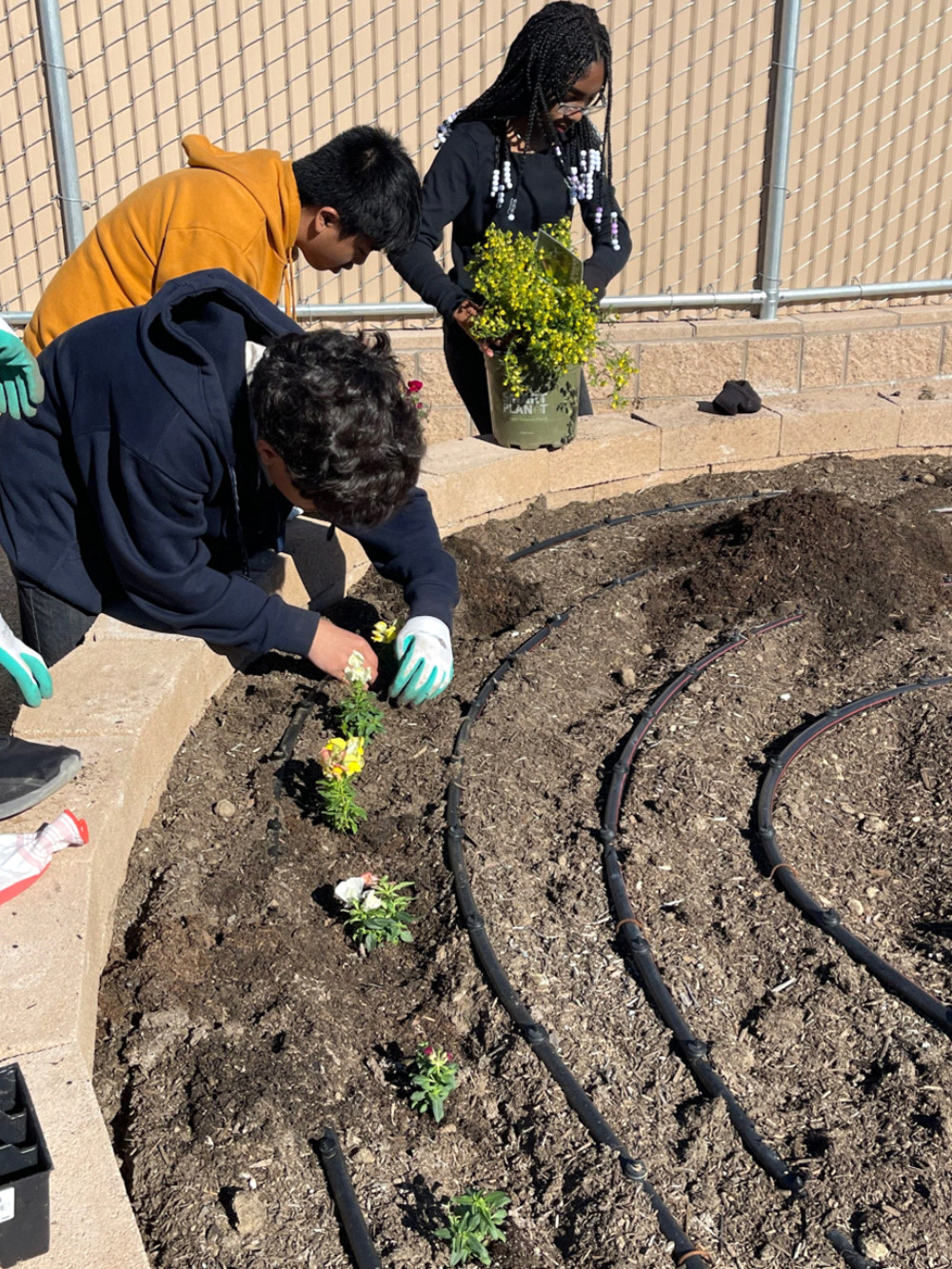
Students planting Spring flowers!
